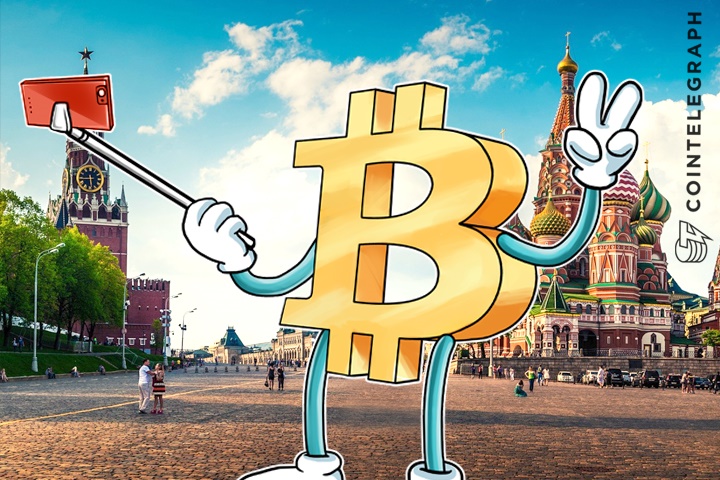No surprise that the interest in Blockchain technology is strong in Russia. Tech enthusiasts and bright business minds do not wait for the Blockchain revolution to happen, they make it happen.
The first Russian Bitcoin Conference, which was held in the Spring of this year, has demonstrated not only that there is a strong demand for the developing of technology in the country, but also the need to create a platform for sharing experiences and knowledge.
Two main areas of concern
The very recent Blockchain&Bitcoin Conference was organized by Smile Expo in the conference center, Digital October. The event was naturally divided into two interesting and important tracks - a Technology Track led by the founder of Bits.media Ivan Tikhonov, and a Regulations Track, led by Blockchain entrepreneur Alex Fork.
Key speakers within the Financial Track - Elina Sidorenko, who is heading the working group for digital currencies at the State Duma, and Artem Tolkachev, the head of the Blockchain Community - outlined the position of Russian authorities regarding the development of digital currencies in the country. As was suggested by the speakers, the main issues discussed by the regulators at the moment concern defining the legal status of digital currencies and ways of their regulation.

- Artem Tolkachev
Following the experiences of other countries, state authorities suggest the treating of digital currencies as one of the following: finances, financial tool, quasi-money, or goods. Each of these options has its own pros and cons and requires the introduction of changes within national legislation.
For example, the idea of digital money being considered as a financial tool is too obscure and uncertain, as the variety of financial tools are too wide and any changes have to be considered by the federal law payment system. Treating digital money as goods is not easy either, it would equalize all digital money transactions to trade turnover, leading to certain complications in the tax policies and trade regulations. Unsurprisingly the term quasi-money appeared in discussions over the nature of digital currencies.
Elina Sidorenko explained: “The term quasi-money does not necessarily imply something bad. This term could eventually be used to define any digital currency, as soon as we agree on what we actually mean by that.”
Industry has changed significantly
Generally the situation around digital currencies in Russia has changed significantly during the last seven months. The most discussed topic last Spring was how harsh the penalty would follow for trading digital currencies. Luckily, regulators have moved forward from their desire to ban alternative money and prevent them from any possible development.

- Ivan Tikhomirov
The working group, analyzing risks from transactions with digital money, will be presenting their report later in December along with suggestions for ministries and other state bodies concerned with the issue. It is expected that soon after the report is handed down, regulators would take concrete steps for introducing changes into the current legislation, or the development of a regulatory framework dealing specifically with digital currencies.
There is a chance that Russia can become one of the few countries actively developing regulatory framework. The pioneer in this field is certainly Japan, where digital currencies are already treated as foreign currencies, and regulatory methods are being developed and tested.
What is cryptocurrency and how to deal with it
Artem Tolkachev largely agrees that the issue of regulation of cryptocurrencies is one of the most pressing issues at the moment. He said that there are at least two directions that could be followed in this regard. First of all, information as such can become a subject of transactions, while digital currencies could be referred to as a special kind of property, characterized by value, circulability and recognition by a wide community.
Secondly, treating digital currencies as foreign currencies could be a way out, in case a special regime of taxation is introduced simultaneously.
Tolkachev shared his view on the development of smart contracts. According to him, there are no significant obstacles in the way of the development of technology, even within the existing legislation. He said: “Smart contract are just like any other type of contract, which differs only in the form of execution and recording.”
However, there are still some challenges for regulators within the system of digital tokens release, which might hinder progress in the field for some time unless they are discussed and resolved.
All things Blockchain
The Conference has also demonstrated that Blockchain technology is being developed and tested in Russia as it has never been before. Projects within the industry are mainly developing in four different directions, namely the development of systems utilizing Blockchain technology, standardizing, testing and promotion and the improvement of the existing systems. Even though the majority of Blockchain startups are occupying the niche within researching new areas for technology application, there is a strong belief that it will soon change.

- Tone Vays
A presentation by Tone Vays about cryptocurrency trading, enthusiasts from the Ural Federal University about their educational program and a presentation by IBM about their ongoing project aimed at hybridizing their supercomputer Watson with Blockchain and IoT, were among other highlights of the Conference. The biggest Russian bank, Sberbank, proudly shared their recent advancement - it has joined the Hyperledger project, and has been actively working on development of an interbanking Blockchain.
Few cryptocurrency companies have represented mining equipment, Bitcoin ATMs and other equipment. The industry is certainly advancing in Russia with large players getting more and more involved in the process of negotiation and the development of concrete strategies. What else does one need to be at least one step closer to a major digital revolution?


